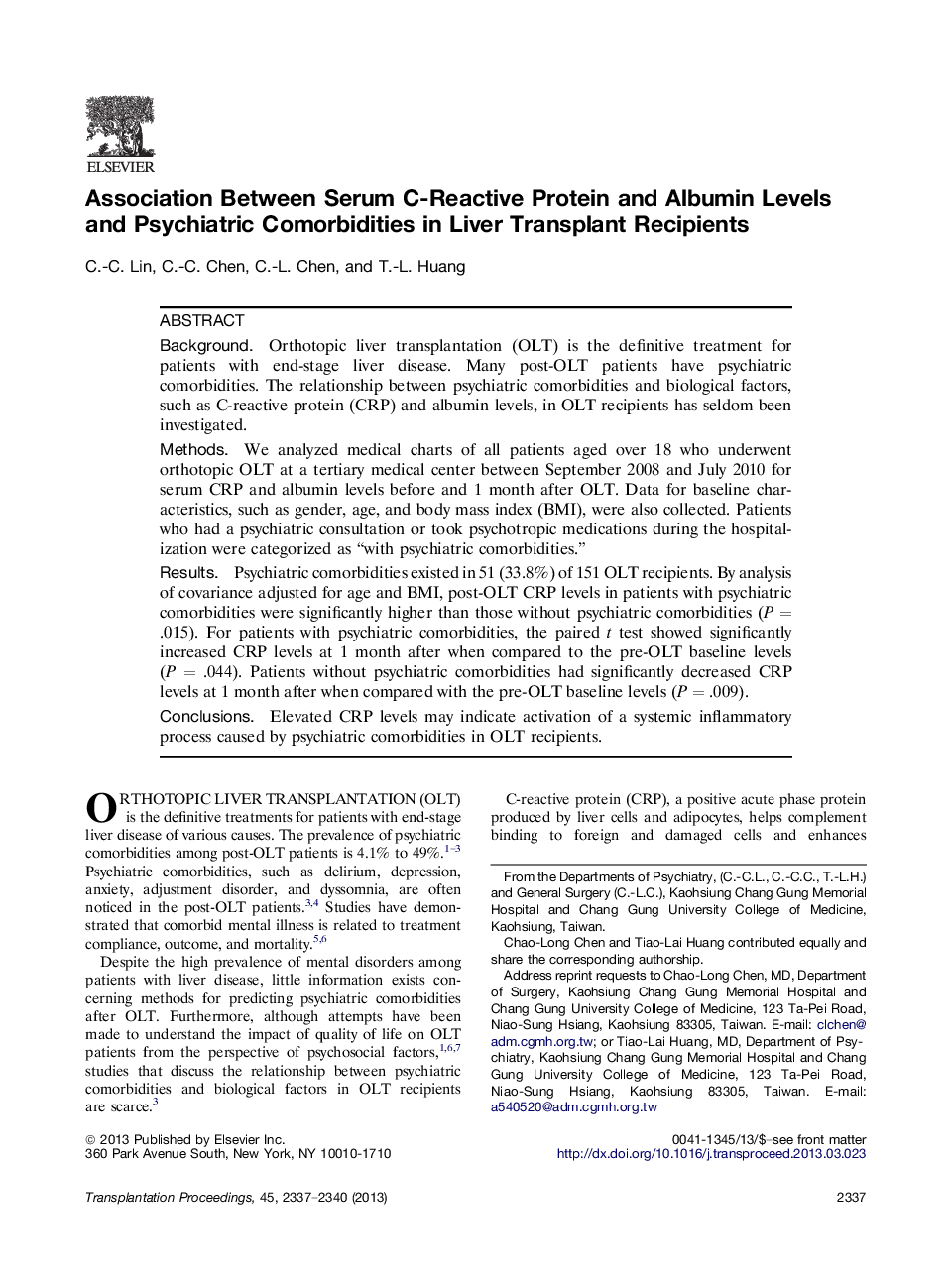| کد مقاله | کد نشریه | سال انتشار | مقاله انگلیسی | نسخه تمام متن |
|---|---|---|---|---|
| 4255677 | 1284495 | 2013 | 4 صفحه PDF | دانلود رایگان |

BackgroundOrthotopic liver transplantation (OLT) is the definitive treatment for patients with end-stage liver disease. Many post-OLT patients have psychiatric comorbidities. The relationship between psychiatric comorbidities and biological factors, such as C-reactive protein (CRP) and albumin levels, in OLT recipients has seldom been investigated.MethodsWe analyzed medical charts of all patients aged over 18 who underwent orthotopic OLT at a tertiary medical center between September 2008 and July 2010 for serum CRP and albumin levels before and 1 month after OLT. Data for baseline characteristics, such as gender, age, and body mass index (BMI), were also collected. Patients who had a psychiatric consultation or took psychotropic medications during the hospitalization were categorized as “with psychiatric comorbidities.”ResultsPsychiatric comorbidities existed in 51 (33.8%) of 151 OLT recipients. By analysis of covariance adjusted for age and BMI, post-OLT CRP levels in patients with psychiatric comorbidities were significantly higher than those without psychiatric comorbidities (P = .015). For patients with psychiatric comorbidities, the paired t test showed significantly increased CRP levels at 1 month after when compared to the pre-OLT baseline levels (P = .044). Patients without psychiatric comorbidities had significantly decreased CRP levels at 1 month after when compared with the pre-OLT baseline levels (P = .009).ConclusionsElevated CRP levels may indicate activation of a systemic inflammatory process caused by psychiatric comorbidities in OLT recipients.
Journal: Transplantation Proceedings - Volume 45, Issue 6, July–August 2013, Pages 2337–2340